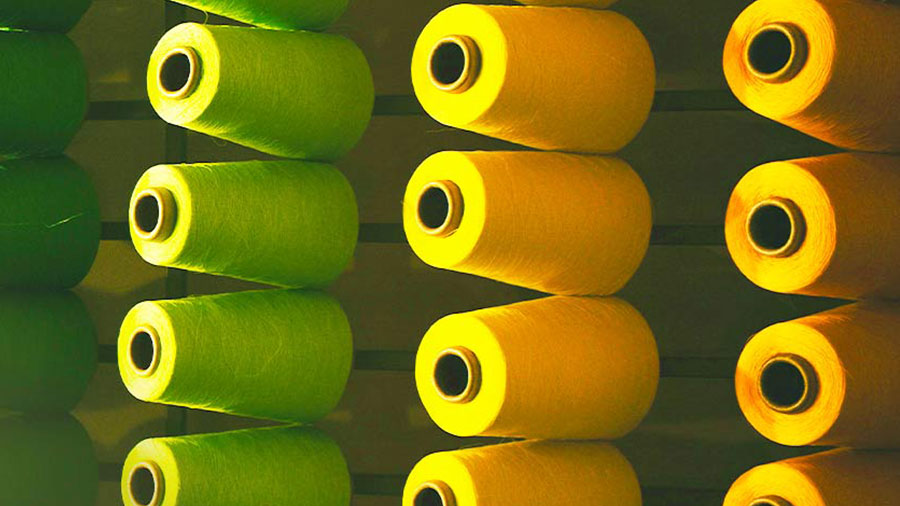UPDATE: India will not implement import restrictions on laptops, tablets, personal computers (PCs), and other electronic items falling under the HSN 8741 category from November 1, 2023 – as the government shifts its strategy towards import management. The DGFT has opened the registration mechanism for companies importing IT hardware. Applications are sought to be approved within a week. Thus, the import license quota policy has been suspended. The move comes after the government held discussions with industry stakeholders and representatives of major foreign tech brands like Dell, Acer, Samsung, Panasonic, Apple, Asus, Lenovo, and HP.
More details here: Import Relief for IT Hardware Companies as India Encourages Local Production
On August 3, via Notification No. 23/2023, India's Directorate General of Foreign Trade (DGFT) imposed immediate restrictions on importing seven items, including laptops, tablets, and personal computers (PCs) falling under HSN 8741 category. The import of these restricted items would now require a valid license.
The next day, on August 4, amending the above notification, the DGFT deferred the implementation of these import restrictions till October 31, 2023 [Notification No. 26/2023].
Unless further policy changes are announced, starting November 1, 2023, the clearance of import consignments of the stipulated seven items under the HSN 8741 category will require a valid 'Licence for Restricted Imports'.
The government "has made liberal transitional arrangements" for import of laptops, tablets, all-in-one PCs, ultra small form factor computers, and servers falling under HSN 8471 till October 31, 2023, per the DGFT.
Quick reference: Items covered under CTH 8471 subject to new import restrictions from November 1, 2023
|
ITC (HS Code) |
Item description |
Existing policy |
Revised policy |
Revised policy condition |
|
84713010 |
Personal computer |
Free |
Restricted |
Subject to Policy condition no.4 of the Chapter 84 pf Schedule-I (Import Policy) of ITC (HS) 2022 |
|
84713090 |
Other |
Free |
Restricted |
Subject to Policy condition no.4 of the Chapter |
|
84714110 |
Micro computer |
Free |
Restricted |
Subject to Policy condition no.4 of the Chapter |
|
84714120 |
Large or main frame computer |
Free |
Restricted |
Subject to Policy condition no.4 of the Chapter |
|
84714190 |
Other |
Free |
Restricted |
Subject to Policy condition no.4 of the Chapter |
|
84714900 |
Other automatic data processing machines; Other, presented in the form of systems |
Free |
Restricted |
Subject to Policy condition no.4 of the Chapter |
|
84715000 |
Processing units other than those of subheading 8471.41 or 8471.49, whether or not containing in the same housing one or two of the following units: storage units, input units, output units |
Free |
Restricted |
Subject to Policy condition no.4 of the Chapter |
Source: DGFT Notification No. 23/2023
Exemptions for specific cases
- Each consignment is allowed one laptop, tablet, all-in-one PC, or ultra-small form factor PC without the need for an import license.
- Under the Baggage Rules, which may be amended from time to time, this exemption also applies to laptops, tablets, and PCs purchased from e-commerce portals through post or courier, provided applicable duties are paid.
- Laptops, tablets, all-in-one PCs, ultra-small form factor computers, and servers that are integral to a capital good will be exempted from import licensing requirements.
- Up to 20 such items per consignment are exempted from the import licensing requirement for specific purposes like R&D, testing, benchmarking, evaluation, repair and re-export, and product development. However, it is essential to ensure that these imported goods are used solely for their intended purposes and not for resale. After fulfilling their designated functions, the products must either be destroyed or re-exported.
- The government has extended the exemption from import licensing to items that are re-imported after being repaired abroad, simplifying the process for those goods.
Why are these import restrictions being introduced
This move, which will curtail inbound shipments of these goods from countries like China and Korea, aligns with the government's commitment to bolstering domestic manufacturing under the 'Make in India' program.
The restrictions aim to provide a boost to local electronics product manufacturers, including of laptops and computers, fostering growth in the indigenous manufacturing sector. India has announced a production linked incentive (PLI) scheme for IT hardware, offering a four percent incentive on incremental production. In May this year, the scheme underwent a revision, with a significant increase in its budget, now amounting to INR 170 billion. This represents more than double the initial budget that was approved in 2021. The primary objective of this boost is to reduce the dependency on imports, a substantial proportion of which currently come from China.
As per a report from think tank Global Trade Research Initiative (GTRI), India's imports from China are predominantly focused on three key product categories - electronics, machinery, and organic chemicals. The report highlights that India's reliance on China is particularly critical for essential day-to-day items and industrial products, such as mobile phones, laptops, components, solar cell modules, and integrated circuits (ICs).
Among the seven categories restricted for imports by India, a significant majority of the imports are attributed to China. During April-May 2023, India's imports from China for these restricted categories were valued at US$743.56 million, reflecting a 5.6 percent decrease from US$787.84 million in the corresponding period of the previous year. The highest share of imports among these categories is in the segment of personal computers, including laptops and palmtops. For this category, imports from China amounted to US$558.36 million in April-May 2023, compared to US$618.26 million in the same period last year. China constitutes approximately 70-80 percent of India's total imports in the personal computers and laptops segment.
Moreover, the government officials emphasized the importance of ensuring a secure environment for Indian citizens, especially with the increasing internet penetration in the country. They expressed concerns over potential security risks associated with certain hardware that might compromise sensitive and personal data. Taking these factors into account, the government has made the decision to restrict the import of these goods.
Commitment to the Information Technology Agreement of 1997 It is worth noting that India's commitment to zero duties on computers and various IT-related products, as part of the Information Technology Agreement (ITA) signed in 1997, remains unchanged. Therefore, the basic customs duties on laptops, PCs, and similar items will continue to be at zero. To control imports, the government has opted for a requirement where firms must obtain government permission before importing, giving the government better control over the value and sources of imports. This measure serves as a more stringent approach to manage the inflow of these goods into the country.
Impact of import restrictions on India's laptop and computer market
The Indian government's bold move to restrict the import of laptops, tablets, and personal computers is poised to reshape the country's electronics landscape. In recent years, India has witnessed a notable surge in imports of electronic goods, particularly laptops and computers. In the period from April to June this year, the import of electronic goods escalated to US$6.96 billion, a substantial rise from US$4.73 billion in the corresponding period of the previous year. These electronic goods now constitute a share of four to seven percent out of the overall imports during this period.
Global tech giants like Dell, Acer, Samsung, Panasonic, Apple, Lenovo, and HP may face hurdles as they navigate the new import regulations, potentially necessitating price adjustments or profit margin reductions to remain competitive.
Conversely, this move presents an opportunity for local manufacturers as the government emphasizes indigenous production. Domestic laptop and computer manufacturers are likely to witness increased demand from consumers seeking alternatives to imported products.
Moreover, the import restrictions are anticipated to have a positive impact on the Indian economy. By promoting domestic manufacturing, the government's vision of 'Make in India' receives a significant boost, likely leading to job creation and further development within the electronics industry.
Businesses should closely monitor updates from the Indian government regarding these import restrictions and their implementation. It is advisable to seek local specialist support in understanding and navigating these new regulations and meeting legal compliance thresholds.
Government requests local production plan from IT firms seeking postponement of import licensing regime
Representatives from major global IT hardware manufacturers like Apple, Asus, and Dell convened on August 8 for discussions with high-ranking officials from the Ministry of Electronics and IT (MeitY). Their aim was to secure an extension on the November 1 deadline—a deferral by 9 to 12 months—to allow them to get a better grasp of the licensing procedures and boost local production.
Without indicating any prospects for a deferral, the MeitY has asked industry players to provide a gradual plan for increasing domestic production.
The central government wants IT hardware manufacturers in India to achieve a localization of approximately 80 percent in value addition for the production of computers and other IT hardware within the coming years.
Media reports of a shift in government strategy
The Indian government is reportedly engaged in discussions regarding a fresh approach to oversee the origins of imported IT hardware—one that shifts the policy from import licenses to import management. A proposal being considered involves implementing a requirement that dictates finished IT hardware, such as laptops, personal computers, and servers, may only be imported from regions deemed as "trusted geographies." This will indirectly target imports from China as relations between New Delhi and Beijing continue to oscillate between mistrust and suspicion. India's import bill is skewed in favor of China across multiple categories, including electronics.
In a September 12 report published by ET, the Indian government told IT hardware manufacturers that a registration mechanism may be implemented in FY 2023-24, instead of the quota and license requirements. This would give major technology brands some relief. Under an import management system, authorities will monitor the source and value of imported devices. The latest updates were communicated in a meeting chaired by Minister of State for Electronics and Information Technology Rajeev Chandrasekhar [September 8] and was attended by representatives from Cisco, Intel, Apple, Samsung, Dell, HP, HPE, Acer, Asus, as well as industry associations ICEA and MAIT.
As things stand, a quota and licensing policy will be introduced in India—but could be deferred to the next fiscal year (FY2025) or at a later stage. Since local production by companies seeking benefits under the PLI 2.0 for IT Hardware will start April 1, 2024, the government understands that demand can only be met with imported supplies.
This article was originally published August 4, 2023. It was last updated September 13, 2023.











